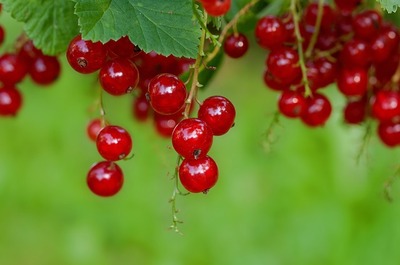Farmers Turning More to Irrigation to Keep Crops Watered
Friday, June 23rd, 2023 -- 8:00 AM

(By Danielle Kaeding, Wisconsin Public Radio) -Some growers say they’ve been increasingly forced to turn to irrigation to avoid stress on fruit and vegetable crops as the state faces drought conditions.
According to Danielle Kaeding with Wisconsin Public Radio, the U.S. Drought Monitor’s latest data shows more than 90 percent of the state is abnormally dry. About half of Wisconsin is experiencing moderate drought conditions, including parts of northwestern Wisconsin and roughly the southern half of the state.
Lindsey Baris said her father-in-law started Rising Sun Farm and Orchard in River Falls with the hope that he wouldn’t have to irrigate crops after farming under dry conditions in Washington state. Baris, who co-owns the farm with her husband Ryan Browne, said they never watered anything when she moved there 10 years ago.
"And over the past five years, it's gotten harder and harder and harder to do that," Baris said. "Then, we started having severe droughts three years ago, and so we found that we could not do it in that method anymore."
Baris said they started digging water lines all over the farm where they grow 35 different types of vegetables, including carrots, broccoli and beets. The farm’s 160 apple trees have been largely unaffected, but she said they’ve set up several sprinkler systems to irrigate fields because they can’t rely on rain anymore.
Andrew Zwald, farm manager at White Pine Berry Farm in River Falls, said it’s a similar situation on their 120-acre farm that mainly grows strawberries, raspberries and blueberries along with red and black currants.
"With the drought, the irrigation has really been running nonstop," Zwald said. "We use a drip-line irrigation tape. We are constantly rotating now where it's at." While dry spells often happen in the summer, he said they’ve been running a lot more this spring.
Adam Hartman is a meteorologist with the National Oceanic and Atmospheric Administration’s Climate Prediction Center. Hartman said Wisconsin has seen a shortfall of anywhere from 2 to 6 inches of rain, and much of that has happened within the last 30 days.
The Upper Midwest, including Wisconsin, has seen above normal evapotranspiration rates. In other words, there’s been high evaporation of water from the soils and vegetation, as well as lakes and streams.
He said that’s combined with temperatures that have ranged anywhere from 2 to 6 degrees Fahrenheit above normal for much of the state, worsening dry conditions. "That's been the case, not just for Wisconsin, but also across a large portion of the Corn Belt and Midwest as well, even into Michigan," Hartman said.
Specialty crops like fruits tend to be more reliant on irrigation than row crops, according to Amaya Atucha, a fruit crop specialist for the University of Wisconsin-Madison’s Division of Extension. As strawberries are harvested around this time, Atucha said not having enough water may mean the fruit dries up easily in the field or doesn’t last as long after picking.
If there’s a lot of heat, normally red and lush strawberries can get sunburned and look more like leather. She said that represents more extreme conditions, which growers haven’t seen yet this year. While they have a good grasp on monitoring soil conditions, Atucha said they’ve seen episodes of drier weather in the last 10 years.
Feel free to contact us with questions and/or comments.




